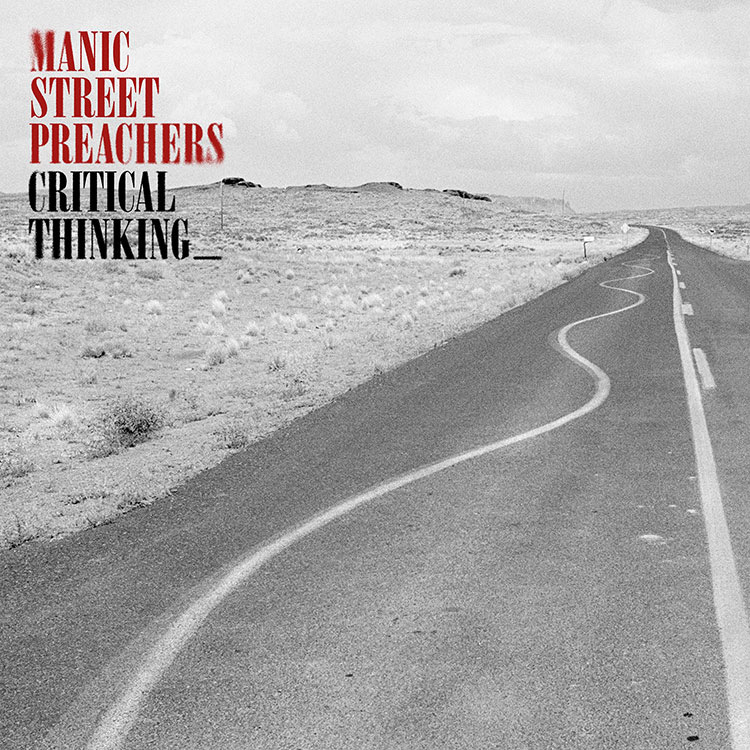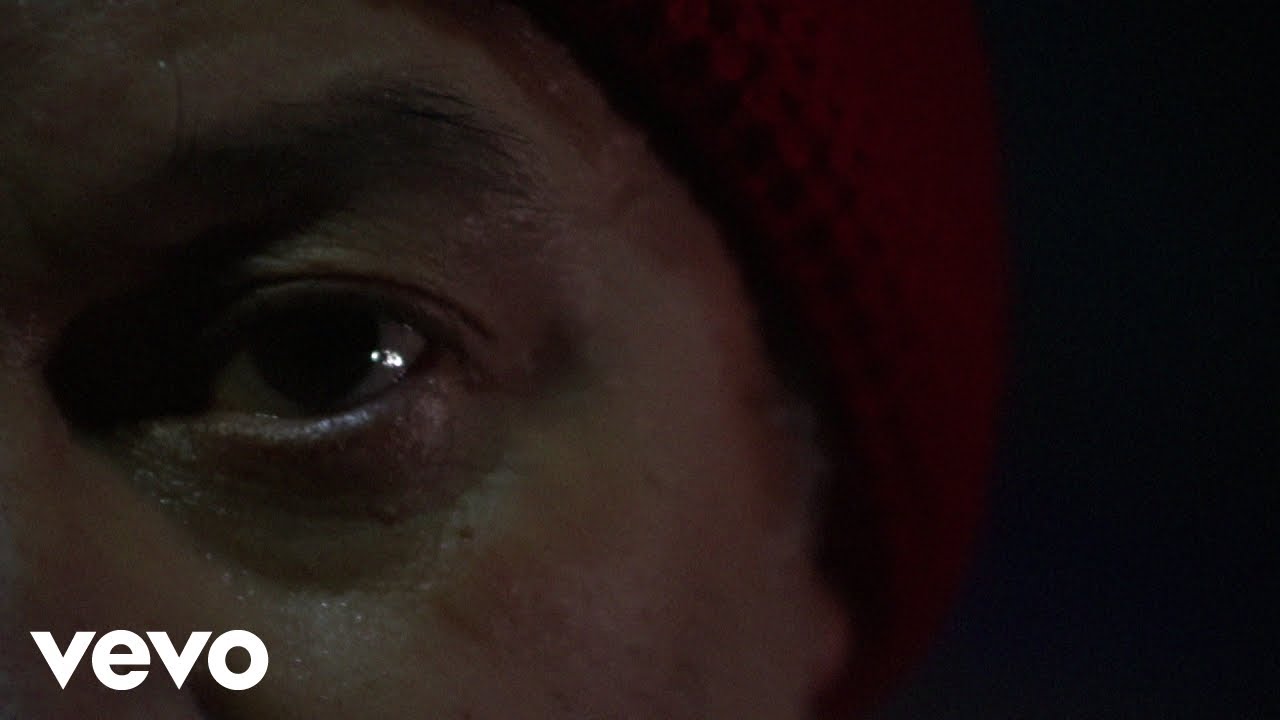There’s a charming lack of cynicism to the Manic Street Preachers’ new album, Critical Thinking. Despite concerning themselves explicitly with hyper-capitalism, managed decline, and political unrest, James Dean Bradfield, Nicky Wire, and Sean Moore can’t help but turn out something that sounds, well, optimistic. But this is the charged, gimlet-eyed optimism of the soapbox speaker: things are bad but they can get better, so you’d better listen in. With each decisive chord change and stadium-sized melody, the Welsh trio render ideas you’d usually find in a political pamphlet or outraged tweet into slogans that could be graffitied in five-foot tall letters on an overpass.
The Manics’ legions of fans will be pleased to hear that Critical Thinking, the group’s fifteenth album, sees them in particularly Manics-y form. Indeed, you can almost hear thousands of people belting out the choruses to ‘Brush Strokes of Reunion’ and ‘Hiding In Plain Sight’ in the same way they might ‘Motorcycle Emptiness’ or ‘A Design For Life’. These have ‘classic’ written all over them. It’s an album of clearly defined verses and middle eights, of song title hooks, and singalong guitar melodies following singalong vocal melodies. The way these songs orbit then arrive at choruses have a kind of gravitational inevitability to them.
The Manics’ thirty-nine years as a band is most evident on ‘Decline and Fall’, which deals in galactic heartland rock, all thunderous energy and chiming pianos; Critical Thinking does a roaring trade in this variety of brawny, charged rock banger. However, things get most interesting when the Manics switch things up. It’s for this reason that the likes of ‘People Ruin Paintings’, with its bouncy energy and (slightly) less conventional structure, and ‘Late Day Peaks’, which has an unexpected but no less welcome Japanese city pop vibe (where you can less obviously hear Bradfield straining to package lyrics into pre-written rhythms) are some of the album’s strongest moments.
While these songs are machine-tooled for maximum impact, there are times when the lyrical content disrupts proceedings. Take the opening track, ‘Critical Thinking’, an icy new wave tune in the vein of Kick-era INXS or The Blue Aeroplanes. Lines about “free ports”, “smart meters”, and “skyscrapers of untruth” suggest the Manics may have come down with a mild case of the Matt Bellamies – though it should be noted that Bradfield recovers this song with a well-timed “Fuck that!”. ‘One Man Militia’, written on the day of Queen Elizabeth II’s funeral, makes me wonder whether the phrase “rigid dogma” ever has a place in rock music.
These songs work best when they concern themselves with the particular rather than the universal. Indeed, ‘Dear Stephen’, which concerns the time Morrissey sent a ‘Get well soon’ postcard to a teenage Nicky Wire, works far better as a commentary on the state of the world than anything about “rigid dogma”. The Manics would do well to remember that subtlety can deliver as much punch as a barked address or strident slogan. The old adage ‘show don’t tell’ is critical. As Anton Chekhov instructed, “don’t tell me the moon is shining; show me the glint of light on broken glass.”
To the uncynical, the occasional lyrical stinker doesn’t distract from what is broadly a thoroughly enjoyable collection of songs. Critical Thinking is still very much a barnstorming Manics album, a state-of-the-nation address that will have many tuning in and nodding along.



